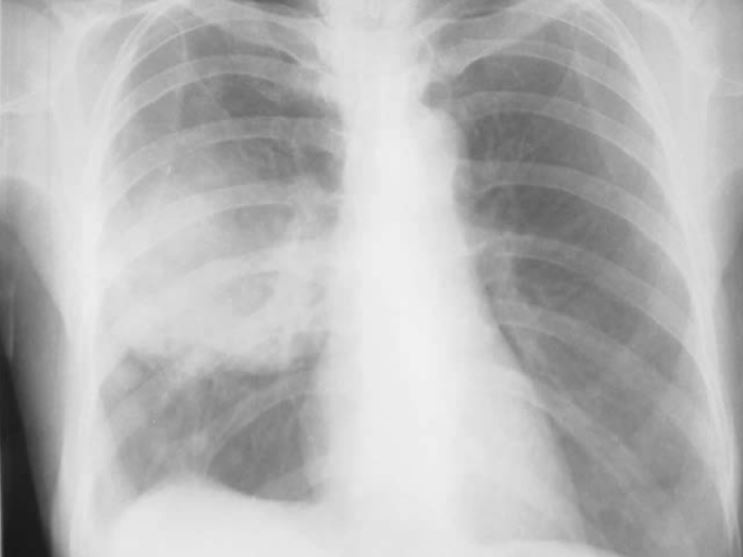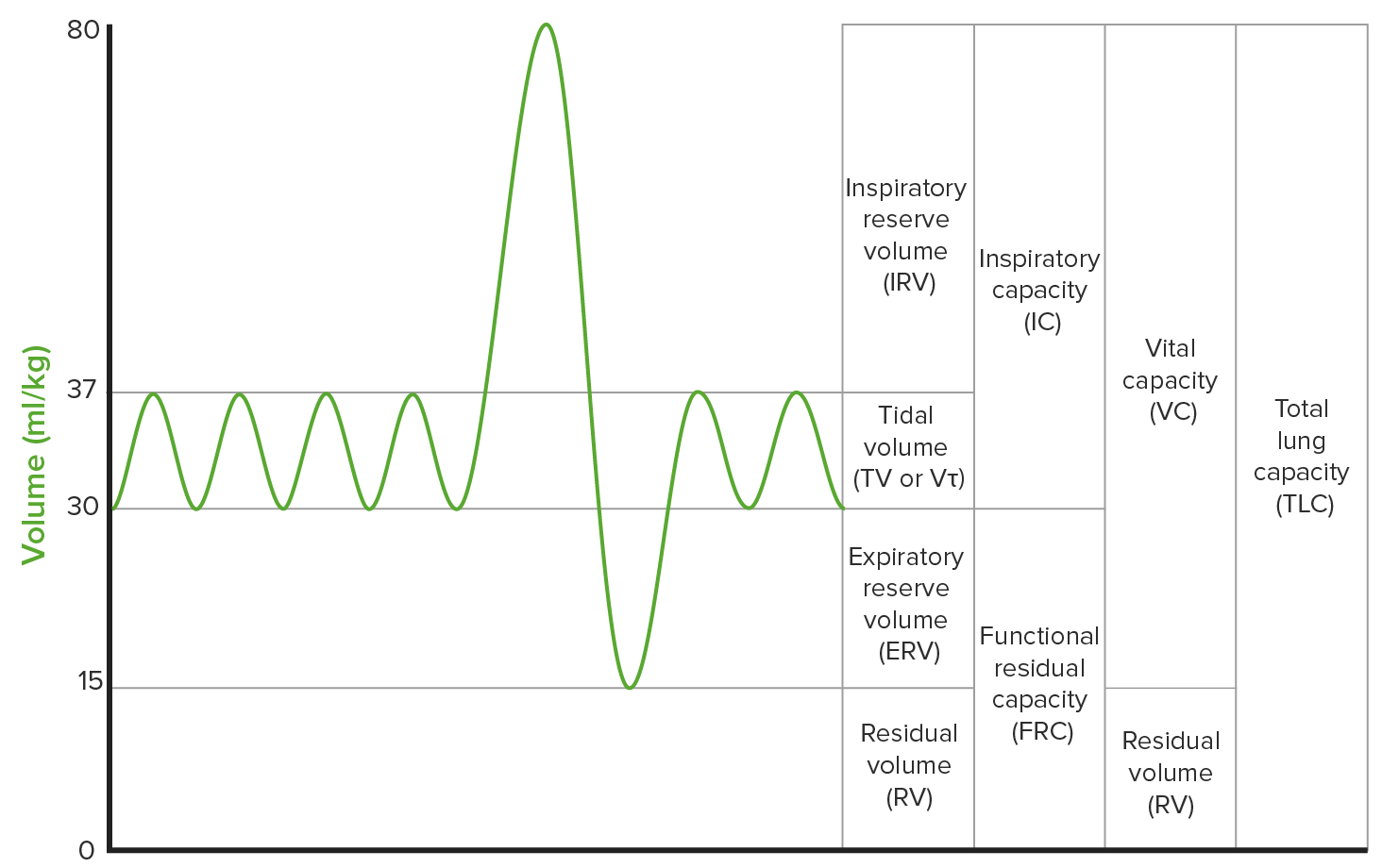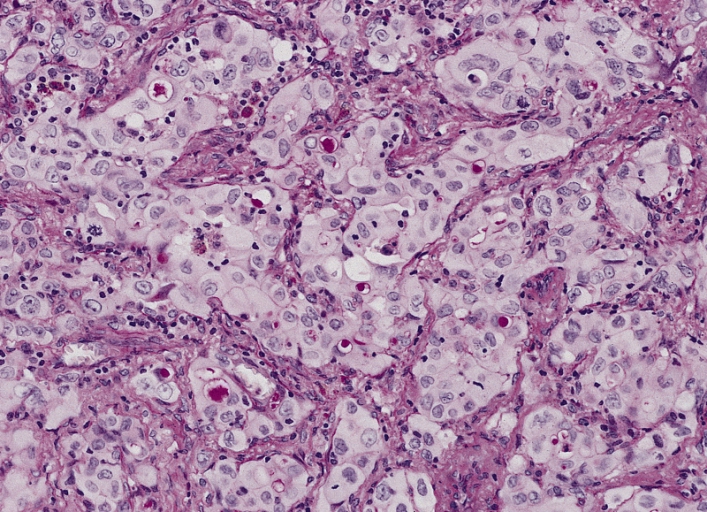Playlist
Show Playlist
Hide Playlist
Treatment: SCLC
-
Slides 07 LungCancer Tumors and Metastases Neoplasias RespiratoryAdvanced.pdf
-
Download Lecture Overview
00:00 Small cell lung cancer is different. As I said before it presents with large and bulky disease frequently well either there are visible metastases or even if there is not visible metastases elsewhere outside the lung. 00:14 There are micro metastases. So if it resects the original tumour the patient will relapse with metastases very quickly. Therefore surgery is not an option for small cell cancer and in these patients they offer chemotherapy. At the entry the tumour is very responsive to chemotherapy with very dramatic results usually with rapid shrinking of the tumour. 00:35 The problem is that result is only short lived and usually the patient will relapse within a few months. So patients with small cell cancer, they are given chemotherapy but again it is palliative rather than hoping for cure. Now proportion can be cured but it's very small. The median survival normally of the small cell cancer is about 15 months. If they have specific problems that need palliation like bone pain, brain metastases etc. we use a same sort of situation you would use in non-small cell cancer with radiotherapy. 90% of patients with lung cancer would die due to that lung cancer. This means that disease palliation in patients who are dying is part of the routine treatment for most patients. This requires a multidisciplinary input. It requires input from nursing staff, respiratory care, respiratory physicians, palliative care physicians, the oncologists for radiotherapy, community palliative care nurses, the general practitioner, the local district nurses. The most important problem is pain control. Pain is frequently a symptom of end stage cancer as it erodes into various bones and chest wall. The principles of pain control for lung cancer work and for other types of oncology is that when the patient presents with pain you start and titrate up how much opiate analgesic you will need, using a short acting agent and the one that is in UK called oramorph. It’s a liquid, very easy to take and lasts about four hours and you increase the dose of that until you have the pain controlled. Once the pain is controlled then you know how much oramorph is required to control it. 02:26 Then you swap into a long acting opiate agent such as MST and that’s taking twice a day and that will control their pain. But we will probably require adjusting as the patient’s disease progresses and eventually many patients in the last few days of their life may need a subcutaneous opiate pump t0 fully control the pain.
About the Lecture
The lecture Treatment: SCLC by Jeremy Brown, PhD, MRCP(UK), MBBS is from the course Lung Cancer.
Included Quiz Questions
Which of the following statements regarding the treatment of lung cancer is FALSE?
- Small cell carcinoma of the lung does not respond to chemotherapy.
- Small cell carcinoma of the lung is usually sensitive to chemotherapy.
- Small cell carcinoma of the lung is sensitive to radiotherapy.
- Median survival of patients with small cell carcinoma of the lung is 15 months.
- Opiates are used as a palliative treatment in patients with small cell carcinoma of the lung.
Customer reviews
5,0 of 5 stars
| 5 Stars |
|
5 |
| 4 Stars |
|
0 |
| 3 Stars |
|
0 |
| 2 Stars |
|
0 |
| 1 Star |
|
0 |






